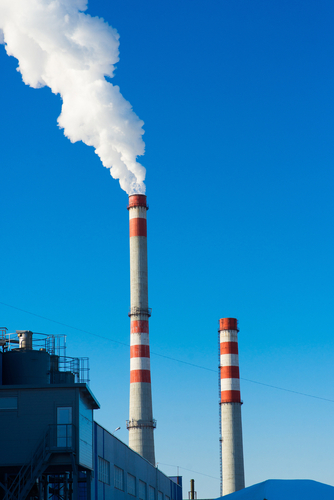
Opponents of Gov. Tom Wolf’s plan for Pennsylvania to participate in the 11-state Regional Greenhouse Gas Initiative (RGGI) applauded a state court’s injunction filed on Friday that will delay the policy from going into effect this month pending further court action.
But the fight is just beginning. The state’s Department of Environmental Protection and Environmental Quality Board today appealed the order to the Pennsylvania Supreme Court.
“The court made the right choice… in pausing implementation of RGGI and I am optimistic that we will succeed on the merits of the case,” said state Sen. Gene Yaw (R-23).
Commonwealth Court Judge Michael Wojcik granted a request for a preliminary injunction against enforcement of the regulation Wolf shepherded through the General Assembly to have Pennsylvania join the RGGI, a multistate consortium that sets a price and declining limits on carbon dioxide emissions from power plants.
Wolf’s regulation to join the RGGI was published on April 23 and was set to take effect July 1. According to the Wolf administration, entering Pennsylvania into RGGI would reduce the state’s carbon dioxide emissions by 97 million tons to 225 million tons through 2030 as owners of fossil-fuel power plants (those having a capacity of 25 megawatts or more) started buying a credit for every ton of carbon dioxide they emit under the cap-and-trade program.
That would mean that roughly four dozen power plants in Pennsylvania that run on coal, oil and natural gas would have to purchase hundreds of millions of dollars in credits each year. Proceeds from those sales come back to the RGGI states, which can use them for energy efficiency projects, to promote clean energy and to possibly offset a related increase in consumer electricity bills.
However, the Pennsylvania legislature’s Republican-led Senate and House have joined the state’s coal producers in vehemently fighting Wolf’s RGGI plan, arguing that the price of the credits is a tax because it will increase certain electricity costs.
Wojcik’s ruling agrees.
“PA COURT ENJOINS THE $800m/year #RGGI ELECTRICITY TAX!!” roared a July 8 tweet from PowerPA Jobs, a coalition of labor, management and consumers opposed to PA carbon taxes on electric generation, manufacturing and motor fuels.
“In a huge victory for PA workers & families, the Court concluded that organized labor, plant operators & suppliers are “likely to succeed on the merits” on their claim that @GovernorTomWolf’s RGGI is an unconstitutional tax,” PowerPA Jobs tweeted.
According to sources, Wojcik ruled that the parties requesting the stay — including state lawmakers, energy representatives, and labor groups — stand to be on the short end of the stick if Wolf’s rule is enforced now and then thrown out later.
“We are grateful to the court for preventing any further damage from Governor Wolf’s electricity tax,” said David Taylor, president and CEO of the Pennsylvania Manufacturers’ Association. “In the fullness of time, we believe the court will agree that the RGGI scheme is an unconstitutional tax that violates the exclusive authority of the General Assembly.”
Luke Bernstein, president and CEO of the PA Chamber of Business and Industry, said on July 8 that the court’s delay is an important, much-needed step for Pennsylvania residents and businesses.
“We appreciate the court pressing pause on this policy, which threatens to significantly increase energy prices at a time of high inflation, while also pushing more economic activity to states on our grid who are not in RGGI,” said Bernstein. “This is an opportunity for policymakers to embrace abundant domestic energy production, facilitate building new infrastructure, support competitive markets, and set long-term policies that encourage innovation.”
Bernstein reiterated that the regulation does not sufficiently protect the state’s electricity and manufacturing sector, nor guard Pennsylvania against the potential for a significant run-up in electricity or commodity prices.
“Businesses, whether they generate or consume power, need both affordable energy and long-term certainty,” he said.
“We need to pursue climate solutions that encourage collaboration with our energy sector, not regressive and unconstitutional taxes meant to destroy it and leave us reliant on foreign oil and gas for decades to come,” added Sen. Yaw. “I look forward to further court action on this matter and continuing our fight to protect Pennsylvania’s economic prosperity.”
Two lawsuits against Wolf’s final rulemaking that are pending in Commonwealth Court await determinations on whether the RGGI program will be paused until the full cases are heard. Arguments for one case are tentatively set for September, while arguments for the second may be heard in November.